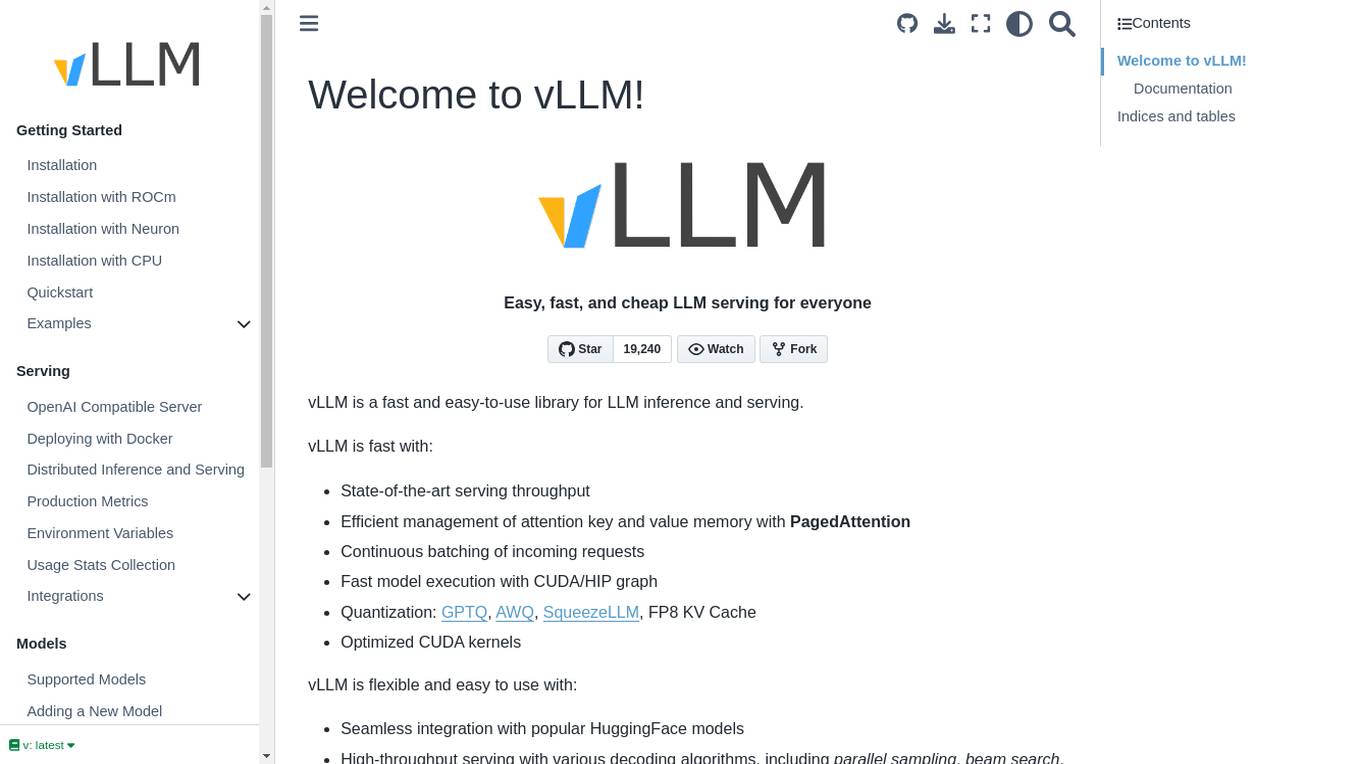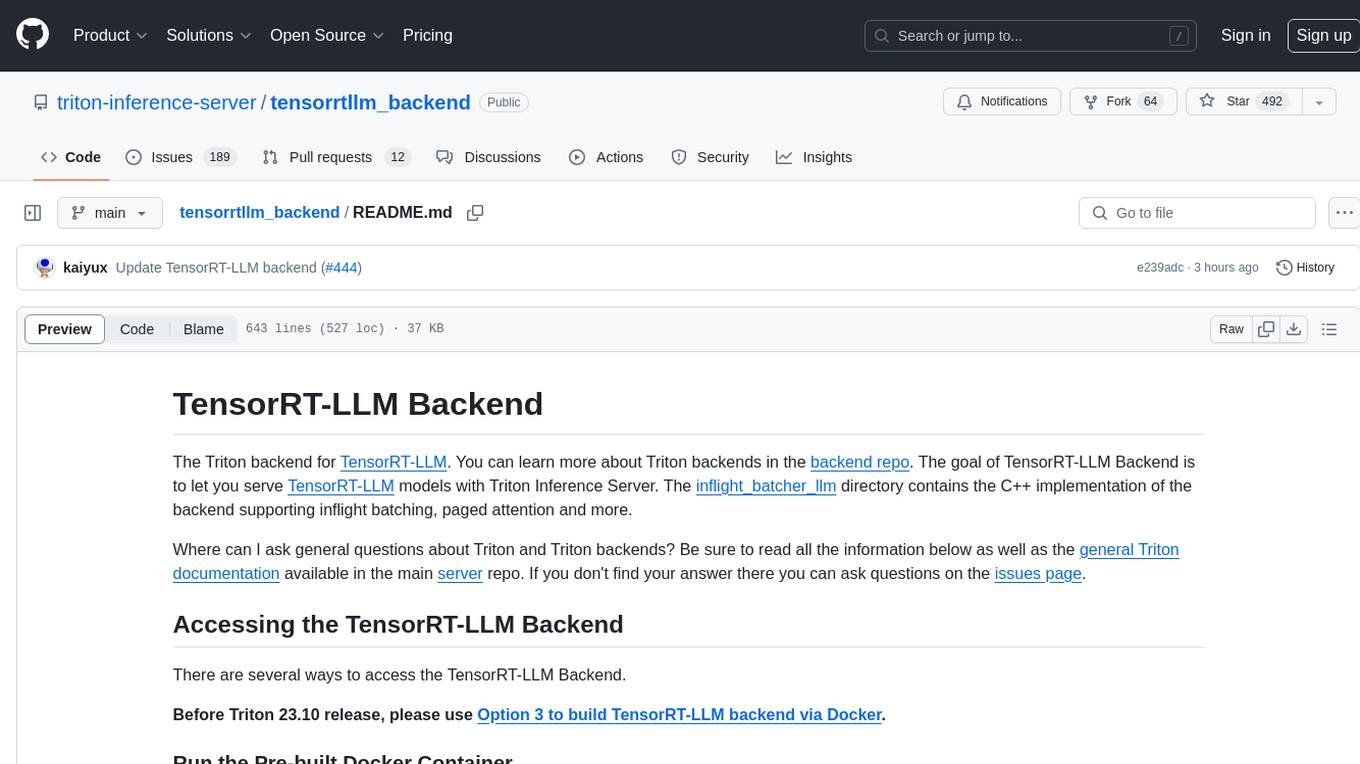Best AI tools for< Batching Requests >
1 - AI tool Sites

vLLM
vLLM is a fast and easy-to-use library for LLM inference and serving. It offers state-of-the-art serving throughput, efficient management of attention key and value memory, continuous batching of incoming requests, fast model execution with CUDA/HIP graph, and various decoding algorithms. The tool is flexible with seamless integration with popular HuggingFace models, high-throughput serving, tensor parallelism support, and streaming outputs. It supports NVIDIA GPUs and AMD GPUs, Prefix caching, and Multi-lora. vLLM is designed to provide fast and efficient LLM serving for everyone.
1 - Open Source AI Tools

tensorrtllm_backend
The TensorRT-LLM Backend is a Triton backend designed to serve TensorRT-LLM models with Triton Inference Server. It supports features like inflight batching, paged attention, and more. Users can access the backend through pre-built Docker containers or build it using scripts provided in the repository. The backend can be used to create models for tasks like tokenizing, inferencing, de-tokenizing, ensemble modeling, and more. Users can interact with the backend using provided client scripts and query the server for metrics related to request handling, memory usage, KV cache blocks, and more. Testing for the backend can be done following the instructions in the 'ci/README.md' file.